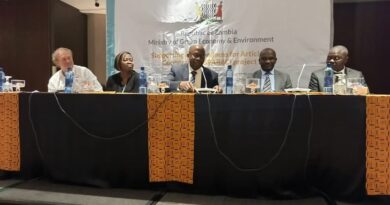Malawi’s Economic Challenges: Broken Promises, Electoral Costs
Malawi’s economy has been at such a critical times and crucial points altogether, facing mounting structural and short-term challenges that demand urgent corrective measures.
The combination of high inflation, currency instability and foreign exchange shortages has created a cycle of rising costs that has been eroding household welfare and undermining business competitiveness.
The steep depreciation of the Malawian kwacha, though necessary for macroeconomic adjustment, has left citizens grappling with soaring food and fuel prices, while businesses struggle to import key raw materials.
Agriculture, which remains Malawi’s mainstay, has been hit hard by recurring climate shocks and low productivity patterns. This has not only threatened food security but also reduced the country’s export earnings, further worsening foreign exchange shortages.
The government’s heavy dependence on imports of fertilizer and fuel, coupled with its limited capacity to generate forex, underscores the fragility of the economic base.
Fiscal imbalances remain a pressing concern. High levels of public debt and widening deficits are crowding out investment in health, education, and infrastructure, while debt servicing is consuming much of the national budget.
This has reduced fiscal space, leaving little room for poverty alleviation and economic diversification.
To address these challenges, Malawi with seemingly new leadership on the horizons, must urgently implement reforms that strengthen domestic revenue mobilization, improve public expenditure efficiency, and accelerate debt restructuring negotiations with external creditors.
Equally important is a strong need to enhance agricultural resilience through climate-smart practices, promote export diversification, and restore investor confidence by maintaining policy consistency and transparency.
Malawi’s economic future hinges on bold reforms that prioritize stability, inclusivity, and sustainability. Without decisive action, the current economic malaise risks deepening, prolonging hardship for millions, and limiting opportunities for long-term growth.



